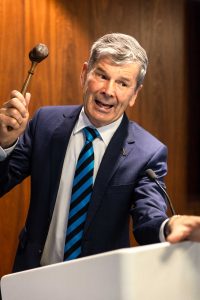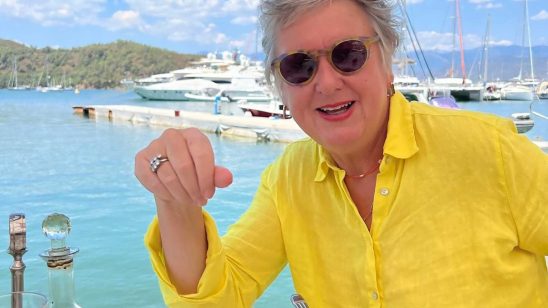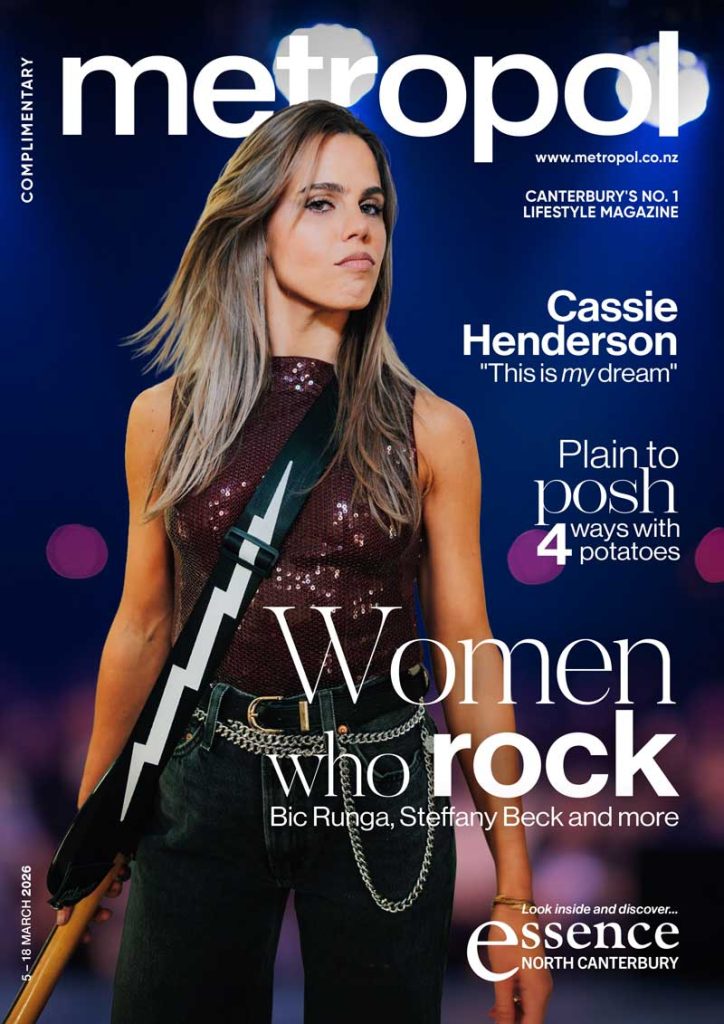Sold on charity
He has spent some 40 years in the real estate industry, becoming an undisputed auctioneer legend. Today in what can only be termed semi-retirement, Phil McGoldrick is seen far more often bringing down the metaphorical hammer at charity fundraisers. Metropol writer Cheryl Colley spoke to him about his career and his philanthropic work.

“I started work in the hotel trade,” says Phil. “I soon realised that with the hours required this was no game for a family man. Instead, I went to a Bob Jones property seminar and soon fell into a job with a local Ashburton real estate firm. It was very simple to get into real estate back in the early 1980s compared with all the regulations of today.”
Real estate roles in Tauranga and finally Christchurch followed. Throughout this time Phil dabbled in the sales technique that was to become his forte – auctions.
“I had seen other agents running auctions and was not particularly impressed. I felt there had to be a better way than the very pedestrian approach that was invariably taken. I did some formal training, went to auctioneering competitions and worked hard to convert real estate firms to auction marketing. Now there can be 3000 auctions a year through Harcourts in Christchurch.”
Phil admits it does take a certain personality type to be an auctioneer. “You need to be a bit of a showman as an auction really is a type of theatre. You also have to be able to read people, be a consummate negotiator and of course be able to persuade and sell your product.”
It is these attributes that now make Phil so sought after as an auctioneer at charity fundraising events.
“There were small beginnings to what has now become such an important part of my life. I would call auctions for school fundraising, local trivial pursuit nights and sports groups, but in 1994 I did my first big gig with the Royal NZ Foundation of the Blind (now known as Blind Low Vision NZ). It’s hard for me to get my head around, but I have called probably about 500 charity auctions since then – around 25 a year.”
This all begs the question “Why”?
“I believe in the causes and the people. If I can help them achieve their fund-raising goals, then I have fulfilled my community responsibility. The Canterbury community has been very good to me and my family over the years – this is my opportunity to give back. I don’t see it as work and it’s also very enjoyable even if I might quite like a few more weekends to myself! You can’t simply turn up on the night. There is a lot of expectation on you so you have to prepare and really know everything there is to know about the items you are auctioning.”
The organisations that have benefited from Phil’s inimitable and immensely successful auctioneering style are many and varied – Koru Care, Child Cancer, Maia Foundation, The Court Theatre, Braintree Trust, Cancer Society, Canterbury Charitable Hospital Trust, Canterbury Medical Research Foundation, Bone Marrow Cancer Trust, Brainwave Trust Aotearoa, City Mission, Cholmondeley Children’s Centre – to name probably not all of them. Phil says he has helped raise at least $1 million a year since he began this philanthropic work, but that could very well be an underestimate.
“I think my role is the easy one, the visible one and the one that undeservedly gets the credit. The credit really should go to the event organisers who gather together all the auction items. That’s the difficult part.”
I expect those various organisers whom Phil has worked with would say he is being far too modest, and that he really is a legend.




